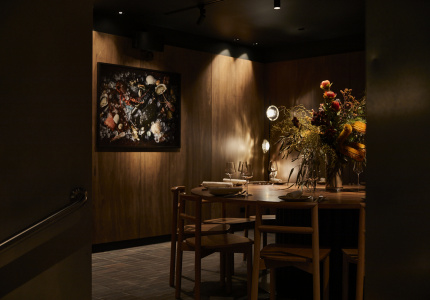Midday, September 6. Premier Daniel Andrews is at his lectern for another one of his sober press conferences, which have come to define 2020 almost as much as being stuck at home. He’s wearing a navy-blue jacket and a crisp white shirt. Behind him, a royal purple backdrop flaunts the state government’s emblem and the tagline “staying apart keeps us together”.
“We Risk Losing Something Quite Special”: 25 Melbourne Restaurateurs, Gallerists, Festival Organisers and More Respond to the Government’s Road Map to Reopening
The people that drive this city’s culture are hurting. Their restaurants are shut. Their art galleries, boutiques and bandrooms are empty. They’re falling deeper into debt and despair. And while there’s a clear, five-step plan to get them back in the game, it has its detractors – including some top medical experts. How do those governed by the plan feel about it? We asked 25 people from diverse industries to share their thoughts.
Andrews updates the assembled journalists on the day’s Covid-19 case numbers and deaths, before moving onto the much-anticipated plan to reopen the state. Reiterating keywords such as “safe” and “steady” he sounds strong, certain, poised. It’s only when he reaches the toughest news that his voice begins to take on the merest quaver.
“From 11.59pm on the 13th of September, we will have to extend – we will have to extend out for two weeks – the current stage-four – the current stage-four restrictions that Victorians are living under,” he fumbles out, as if expecting the room to erupt any second.
That room didn’t, but thousands of others across the city must have. In addition to imposing two more weeks of lockdown, the five-step plan says restaurants, cafes, bars and shops can’t reopen until October 26, and indoor concerts and other live events won’t resume until November 23. And only then if case numbers fall to stringent, pre-set low numbers.
For retail, hospitality, art, music, entertainment, fitness, hairdressing, beauty and other industries that have been slowly bleeding out since March, it was another setback in a year seemingly filled with nothing but.
Surely we could reopen Melbourne a bit quicker, preserving businesses, jobs and mental health?
“No”, said the government’s modelling, based on 1000 scenarios loaded into a supercomputer and analysed by a team of four people from the University of Melbourne and the University of New England. “You can’t argue with this sort of data,” Andrews said.
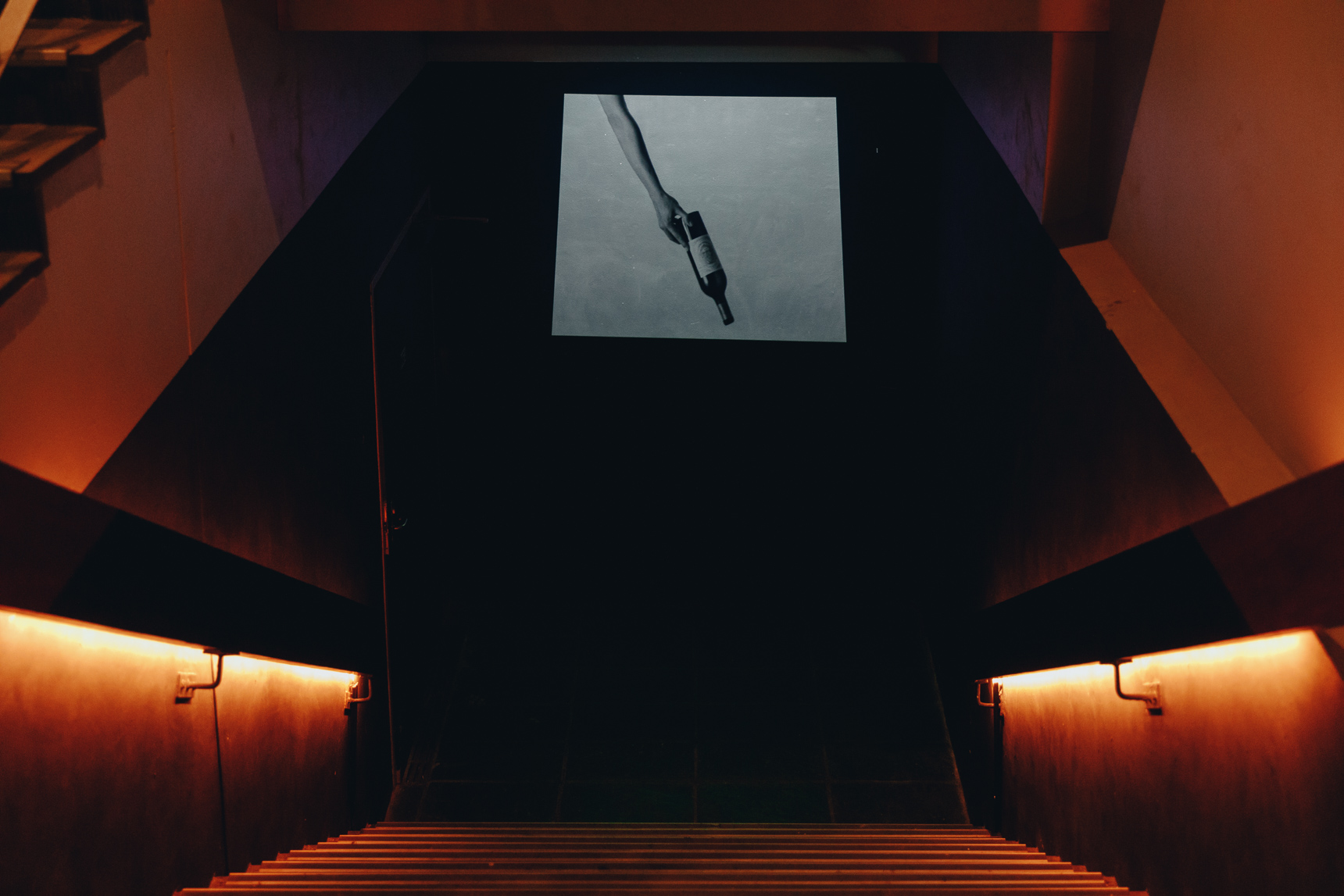
Less than a week later, Professor Tony Blakely, an epidemiologist and a member of the team that did the modelling, wrote an article for The Age stating the road map is, in his expert opinion, overly cautious – suggesting the data may in fact be argued with. Professor Catherine Bennett, Deakin University’s chair of epidemiology, has similar thoughts.
Everyone wants to reopen the city as safely as possible, with minimum risk to human life. But the current road map is not necessarily the only viable way to do that. And disagreeing with its finer details and execution is not the same thing as disagreeing with the science at large.
With this in mind we approached 25 Melburnians, who work in industries disproportionately affected by coronavirus lockdowns, for their thoughts on the situation. We asked seven open-ended questions and one multiple-choice question. We present their answers here, lightly edited for length, clarity, spelling and grammar. In cases where several similar answers were supplied, we selected the most insightful and concise only.
Skip to question:
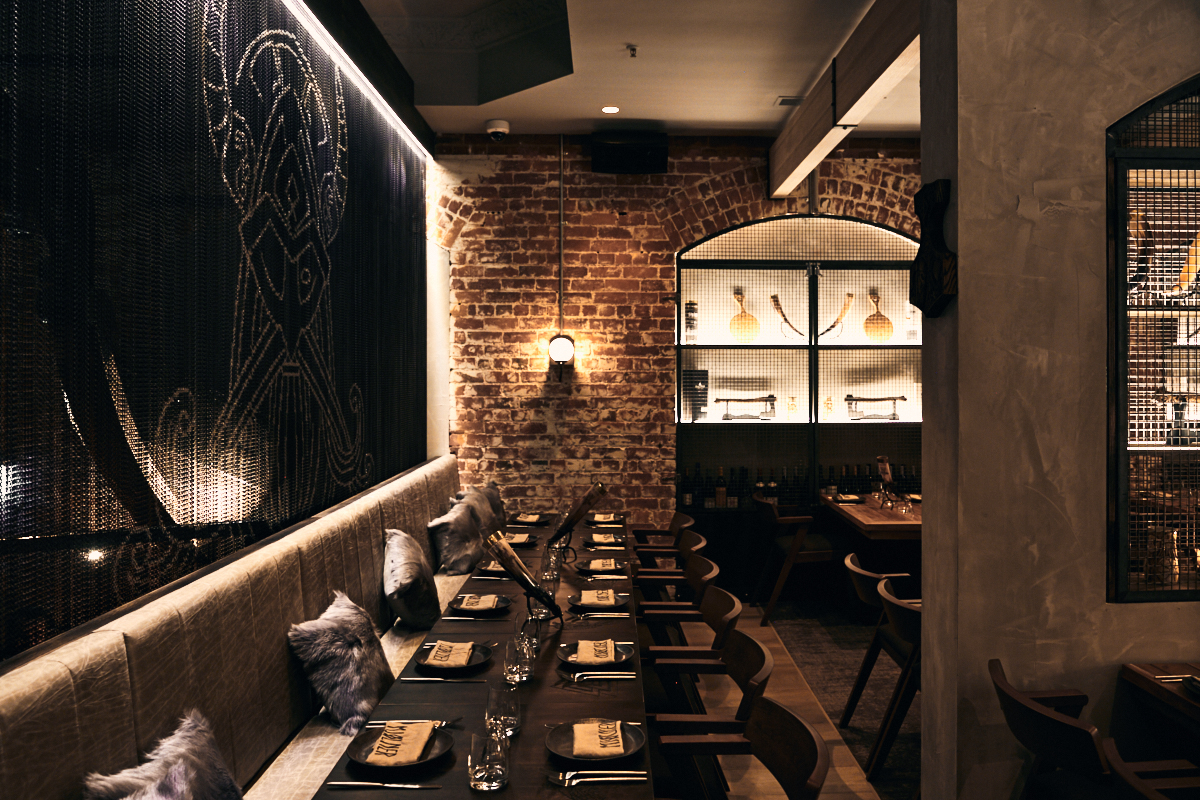
Exhausted.
– Alex Cleary, director, Alpha60 (fashion)
– Marco Finanzio, owner, Umberto Espresso and Joanie’s Baretto, Thornbury (hospitality)
Pretty devastated, to be honest. It was like a kick in the guts. We have worked so hard for 31 years building our brand from the ground up and now it feels like my legs have been cut off.
– Tom Donato, director, Xiang Hair, Melbourne, Essendon and Greensborough (hairdressing)
The news felt heavy, exhausting and monotonous. A few moments after it sunk in, I sat in the backyard and cried. I’m so sad for the future of the culture of our city. I’m sad for all the businesses that have had to close their doors. For all the missed moments and conversations with friends. For all the up-and-coming artists, chefs, businesses, creatives, teachers, et cetera, who won’t get to be. For the utter lack of serendipity in our lives.
– Cat Webb, director, Good Times Pilates, Fitzroy (fitness)
Deflated, bleak, dejected and pessimistic. Beauty was quickly reassessed and approved to open on October 26 (alongside hair) after an incredible amount of public response. This sounded better, however when going over the road map with a fine tooth comb the details prohibit us from doing our bread and butter services.
– Sia Psicharis, director, Beautyologist, St Kilda East (beauty)
Daunted, it’s a long road map out and I’m not sure it will be viable for many businesses to exist in this industry.
– Bridget Amor, co-owner, Seven Seeds, Carlton, and Traveller and Brother Baba Budan, Melbourne (hospitality)
Stressed. Surprised. I thought we would be opening our indoor dining areas in the format we were in in June by at least the end of October. I listened to the announcement on TV, and when I heard the 23 November date, I turned it off. It took me four days before I felt emotionally ready to read the rule book.
– Adele Arkell, owner, Radio Mexico, St Kilda and co-owner, A Cafe Called John, Carlton (hospitality)
On a personal level I felt pleased that the government is taking a measured approach, taking the situation seriously and not rushing into opening up too quickly. Professionally it’s a little more complicated, because the temptation can be to want a speedier recovery plan. But the government’s clear imperative was to minimise the numbers of people moving around, to reduce spread, but also to improve contact tracing. So ultimately a controlled recovery in stages will protect jobs, the economy and the music industry into the future. It’s hard to argue with a road map that has taken Victoria from 600–700 cases of the virus a day to 11 new cases announced today.
– Emily Ulman, director, Isol-Aid Festival and programmer, Brunswick Music Festival (live music)
I was relieved to have some surety with dates, and milestones to plan towards. It was clear that the case numbers were still too high to come out of stage four on September 14. Although reopening seemed a long way off, we immediately started backend preparations for a future “new Covid normal”.
– Helen Marcou AM, co-founder, Bakehouse Studios (live music)
Pretty demoralised. The target of five or less cases over a 14 day period is extremely low. NSW, for example, would not be open right now if it had the same roadmap.
– Sophie Gannon, director, Sophie Gannon Gallery, Richmond (art)
It didn’t sound like a road map for hospitality. For Navi we don’t really have an outside dining option. To do what we do, on the street, would be turning the business into something completely different. I don’t see the point in that. On that note, they say we have to have zero cases for two weeks before we can have people inside, who knows when that is? And I’m worried that when they do open outside dining, people will be so keen to get out that places like us will be left behind. Maybe I’m wrong, but I’m not overly optimistic.
–Julian Hills, chef and owner, Navi, Yarraville (hospitality)
Extremely disappointed to hear the strict low case numbers required before the fitness industry and many other industries can reopen. Also, disappointed to hear there would be no attempt to contain hot spot areas, and that all of Melbourne metro is to continue for weeks or months this way.
– Caroline Knipe, co-owner, Love Athletica, Windsor, Hawthorn East and Malvern East (fitness)
The benchmarks for case numbers seem very low, but the road map prioritises certainty and reducing the risk of a third wave. That is ultimately a good thing. If we open up too hard, too early and need to go back into a form of lockdown for a third time it would be devastating for both confidence and in practical terms.
– Dion Brant, COO, Frontier Touring (live music)
It was an expected, albeit disappointing, announcement.
– Salvatore Malatesta, owner, St Ali, South Melbourne (hospitality)
I haven’t really looked at it. I try to control the controllables. It doesn’t matter how much you jump up and down and kick up a stink, they’re gonna do what they want to do. So I worry about the definites. The definites are the dates that have been set, and I’ll manage my business around those dates. I’m not getting upset like everyone else. It’s no use. I want to focus my energy on positivity.
– Shane Delia, owner, Maha, Melbourne, Maha Bar, Collingwood, Maha East, Windsor and Providoor (hospitality)
The timing felt longer than anticipated with regards to moving from stage to stage, but I completely support the strategy to get on top of this wave in a way that will enable us to not risk going in and out of lockdown in the short to medium term.
– Lucy Folk, director, Lucy Folk (fashion)
I felt it lacked the detail we needed to really plan our rebound. There were hints at things such as “predominantly outdoor dining” but not much clarity around what that means. But a plan is better than no plan, so at least we have some dates we can start working towards.
– Justin Joiner, co-owner, Stomping Ground, Collingwood (hospitality)
Having a time frame with the roadmap does allow us to make plans in advance instead of wondering week to week if things will change. You just have to look at the positives and get on with the job.
– Kylie Staddon, operations manager, Attica, Ripponlea (hospitality)
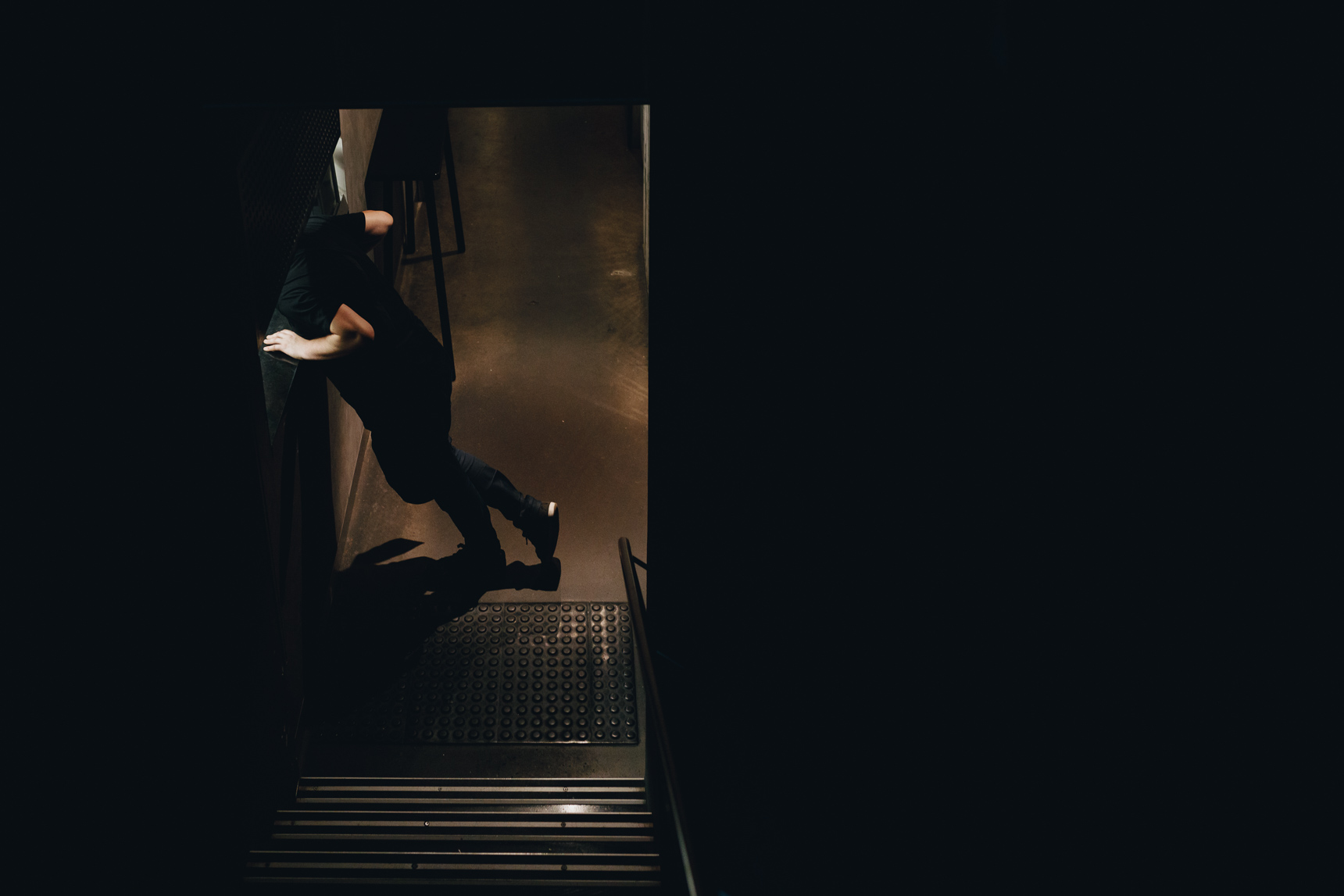
To what degree do you support the proposed road map?
I’m completely opposed – nine per cent
I’m somewhat opposed – 18 per cent
I neither oppose nor support it – 18 per cent
I’m somewhat supportive – 41 per cent
I'm extremely supportive – 14 per cent
Explain why you do or don’t you support the road map?
I agree, of course, with the overall goal but feel that some of the targets will be very difficult to achieve. There’s a mix of expert opinions, many at odds with what the government has based its models on, as well as a sense that the state government, while working incredibly hard, may not be the best team to get the job done.
– Christian McCabe (hospitality)
I trust that people that know more about epidemiology, policy making and health than I do are making the best decisions they can for everyone in Melbourne. All I can control is how we act as a business during this time, not what the decision makers are doing, so that is what we are focusing our efforts on.
– Kylie Staddon (hospitality)
In the current predicament metropolitan Melbourne is in, I can’t provide a better alternative for reopening than what’s already been determined without causing grave risk to the public and undermining the community health achievements of the lockdowns past and present.
– Zac Abroms, director, Viceroyalty (live music)
I support saving lives and being sensible about public health and safety during a pandemic. I don’t support restrictions that are not backed by science or where the science is still out, like curfews. The road map is towards elimination, which many epidemiologists say is impossible, given the nature of the virus. Even the WHO advises against heavy lockdowns and elimination. In the road map, the onus of this virus slowing down has squarely been placed on the people of Melbourne and their compliance with restrictions, instead of with the many measures the government could take to decrease the spread and allow us some return to “normal”. Even Professor Brendan Murphy has called it a “very conservative approach” and said if the public health response were stronger, we could potentially open up sooner.
– Cat Webb (fitness)
We do what we have to – anything – not to have third wave around Christmas.
– Alex Cleary (fashion)
I understand how hard it is. I don’t want to rush things into the point where we have someone with Covid come into our restaurant. The ramifications of that would be a lot more than us just waiting this out until things are ready to go. It’s just not knowing that’s hard. I don’t blame anyone for that … I want to keep my staff safe and I don’t want to rush it.
–Julian Hills (hospitality)
I feel it was something just thrown at Victorians to shut us up. We have all been extremely compliant and patient for months on end and once the pressure to have a plan went up a notch, the road map [came out] completely lacking understanding, compassion and any practicality. [It’s] completely disrespectful to our whole community and we deserved a better, more consultative approach to a hopeful and realistic future which strikes a practical balance between health and livelihoods.
– Marco Finanzio (hospitality)
Unrealistic expectations on case numbers. Blanket approach across many industries and suburbs. Lack of proactive measures around aged care and healthcare. Lack of consultation with industries.
– Caroline Knipe (fitness)
I can understand the need for a measured approach when returning to business as usual, as the last thing the industry needs is to open for a brief period and then have to lock down again. However, I’m not sure how realistic some of the goals for daily infection rate are.
– Simon Denman, co-owner, Neighbourhood Wine, Fitzroy North and Old Palm Liquor, Brunswick East (hospitality)
More creative solutions to adapting should be accelerated and explored in order to protect hospitality in Melbourne.
– Salvatore Malatesta (hospitality)
I’m in favour of trying to get case numbers as low as possible before reopening. Anything to avoid having to go through another close, I am happy to support. However I don’t agree with the extreme number put forward.
– Matt McConnell, executive chef and co-owner, Bar Lourinhã, Melbourne (hospitality)
It’s incredibly hard in business to be changing your model consistently. The last few months have been challenging. l would liken it to opening a new business every day. However, a far worse scenario is that we’re in the same position going into next year.
– Bridget Amor (hospitality)
– Joel Morrison, owner, The Carringbush Hotel, Abbotsford and The Old Bar, Fitzroy (hospitality and live music)
I take all this seriously. I’m not anti-road-map. I’m not anti-mask, or a conspiracy theorist. But it’s just such a difficult thing – the damage being done is so great. I feel pretty strongly that we have to learn how to live with it. I feel that if supermarkets are safe, then just about anywhere is. People are very compliant in general (e.g. mask wearing) and if we open up like we did in June, it will get everyone back into the momentum of living. I have so many feelings on this – many in conflict with one another. The only silver lining to this plan is that surely it will mean we can trade all through summer. In that context, I would rather be shut now that later on in the year.
– Adele Arkell (hospitality)
There is no argument that the current closure hasn’t worked. It has saved countless lives and reduced the potential threat to our hospitals. However, the impact to the hospitality sector will be felt for years to come. The industry was already on its knees pre-Covid-19. This has sped up the undeniable correction that was already pending – albeit an overcorrection. We’re all rushing to reopen and unlock hospitality, into the worst recession we will probably experience and into a city with reduced foot traffic. There is zero guarantee that when we reopen we will even get close to pre-Covid revenue over the next six months. Once we do reopen, we will also lose the ability to negotiate ongoing rent relief from landlords. This, along with the reduction in Jobkeeper, we will see more venues close than we did during lockdown.
– Michael Bascetta, co-owner, Capitano, Carlton, Bar Liberty, Fitzroy and Falco Bakery, Collingwood (hospitality)
The only way back for our industry – to be able to stage commercially viable events – is either a vaccine/treatment or near elimination of community transmission. It won’t work to accept higher levels of transmission, just to get back with smaller events a few weeks earlier. Audience confidence will be low and the risk of yo-yo-ing in and out of restrictions as numbers flare up will be greater.
– Dion Brant (live music)
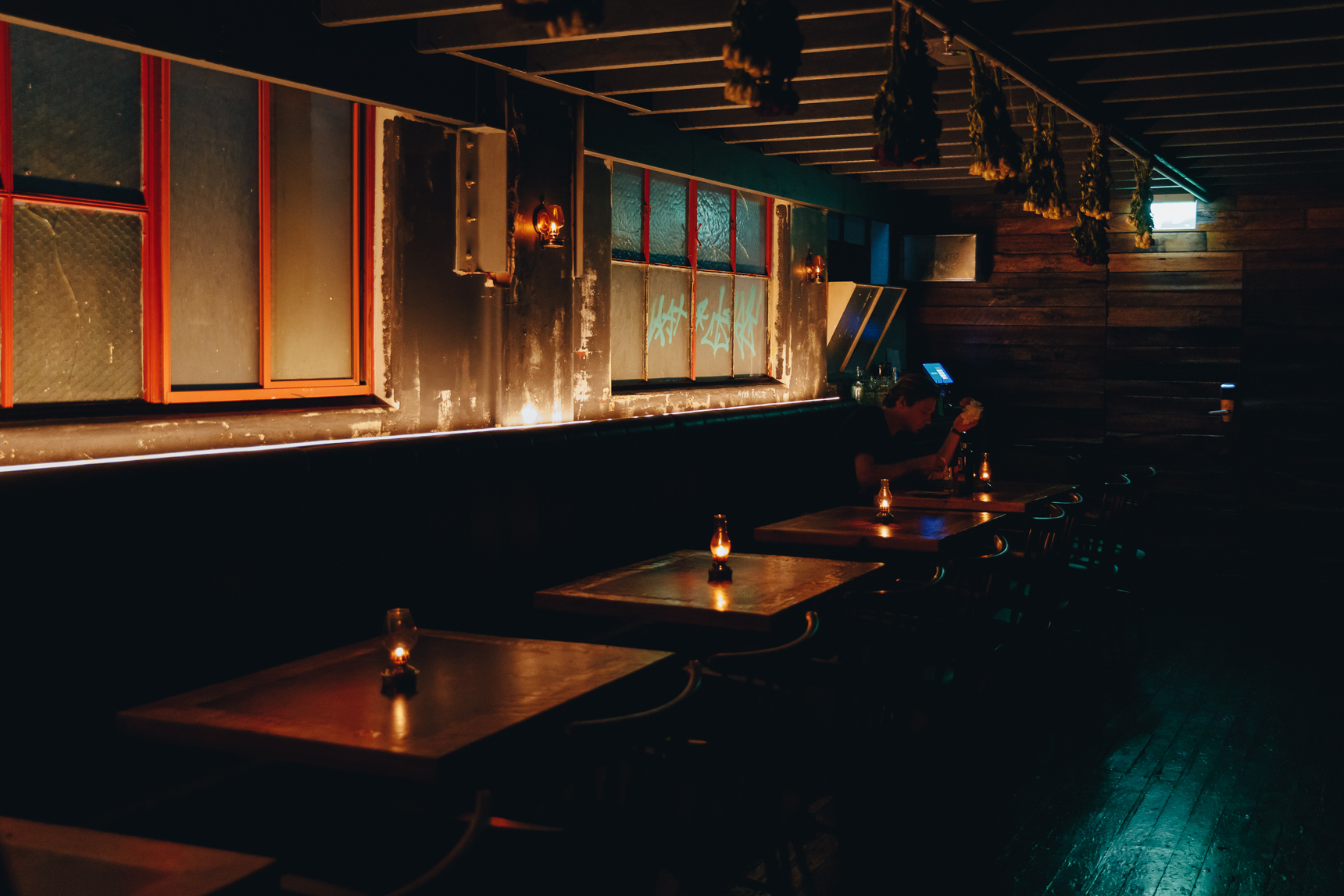
What, if anything, would you change?
The road map needs to include indoor dining for our business to reopen.
– Matt McConnell (hospitality)
I’d like to see the five-kilometre limit extended, in particular for City of Melbourne. Having three stores located in City of Melbs, it is devastating to watch.
– Bridget Amor (hospitality)
Ease case numbers from five to 10. Allow hospitality and fitness to open sooner. Consult industries and listen to their safety procedures and contact tracing in place.
– Caroline Knipe (fitness)
I think feel the indoor aspect of the restrictions should really be relaxed sooner than what is currently in the road map. As an industry we have well-trained staff who understand regulations and how to operate within them. We have Covid-safe plans, we’ll be registering every visitor, social distancing will be managed – it feels like our venues are safer than a family barbeque when it comes to the spread of this virus, yet at the third step we’ll only be allowed 10 people per space inside, up to a maximum of two spacess, regardless of the size of the spaces.
– Justin Joiner (hospitality)
Road map shortened and focus on prevention through management.
– Salvatore Malatesta (hospitality)
Clearer guidelines and objectives for hospitality. I can understand this is hard when making policy on the fly though.
– Simon Denman (hospitality)
I’d open retail earlier. I know that I can reopen safely. The gallery is a large, unpopulated space and we have a Covid-safe plan ready to go.
– Sophie Gannon (art)
I would communicate and be more transparent with people to elevate the anxieties. I would allow skin treatments however set guidelines for example clients need to wear PPE into and out of clinics. I would open industries up but with strong protocols in place. I would also set very strong expectations and campaigns surrounding “If you feel sick, get tested and stay home.”
– Sia Psicharis (beauty)
When it was first released I felt there needed to be flexibility with adjusting the dates if the milestones were achieved earlier. I'm happy to see this happening (rural Victoria this week for example), and am confident this will also be the case for metro Melbourne if appropriate.
– Lucy Folk (fashion)
It would be helpful to set out more detailed parameters for what live music events options might be at the later stages. “Some events may be possible with Covid-safe plans” doesn't tell us much. It would be good to be able to discuss meaningfully issues such as density, open air versus indoors, reserved seating or ticketing/crowd control options, hygiene and cleaning expectations, event duration, contact tracing, et cetera. If you had a set of guidelines – even if there was no commitment – you could start to plan meaningfully for events into early next year.
– Dion Brant (live music)
The road map really needs to involve a more specific indication of which struggling industries are intended to be saved/supported, and by what means. I think for most of us, if the intent is to let us go broke, we’d rather know that so we can get on with whatever we’re going to do next. But once a culture has been squashed it’s very difficult to bring it back, and we risk losing something quite special here.
– Christian McCabe (hospitality)
I'd like more transparency from the state on the additional measures they’re putting in place to increase the public health response, in particular with regard to contact tracing. Also, the process lacks the explanation of a grand plan. What are they doing long term that’s going to support us to stay open? Also, it would be really helpful if the state used the same definitive language and key points that they did on the way in on the way out. For a lot of industries, it’s clear as mud what they are and aren't allowed to do.
– Cat Webb (fitness)
It’s a complex piece of work, I trust in the experts. For our sector, we need cases low or eradicated to open.
– Helen Marcou AM (live music)
There’s nothing immediately obvious that warrants changing, in my opinion.
– Zac Abroms (live music)
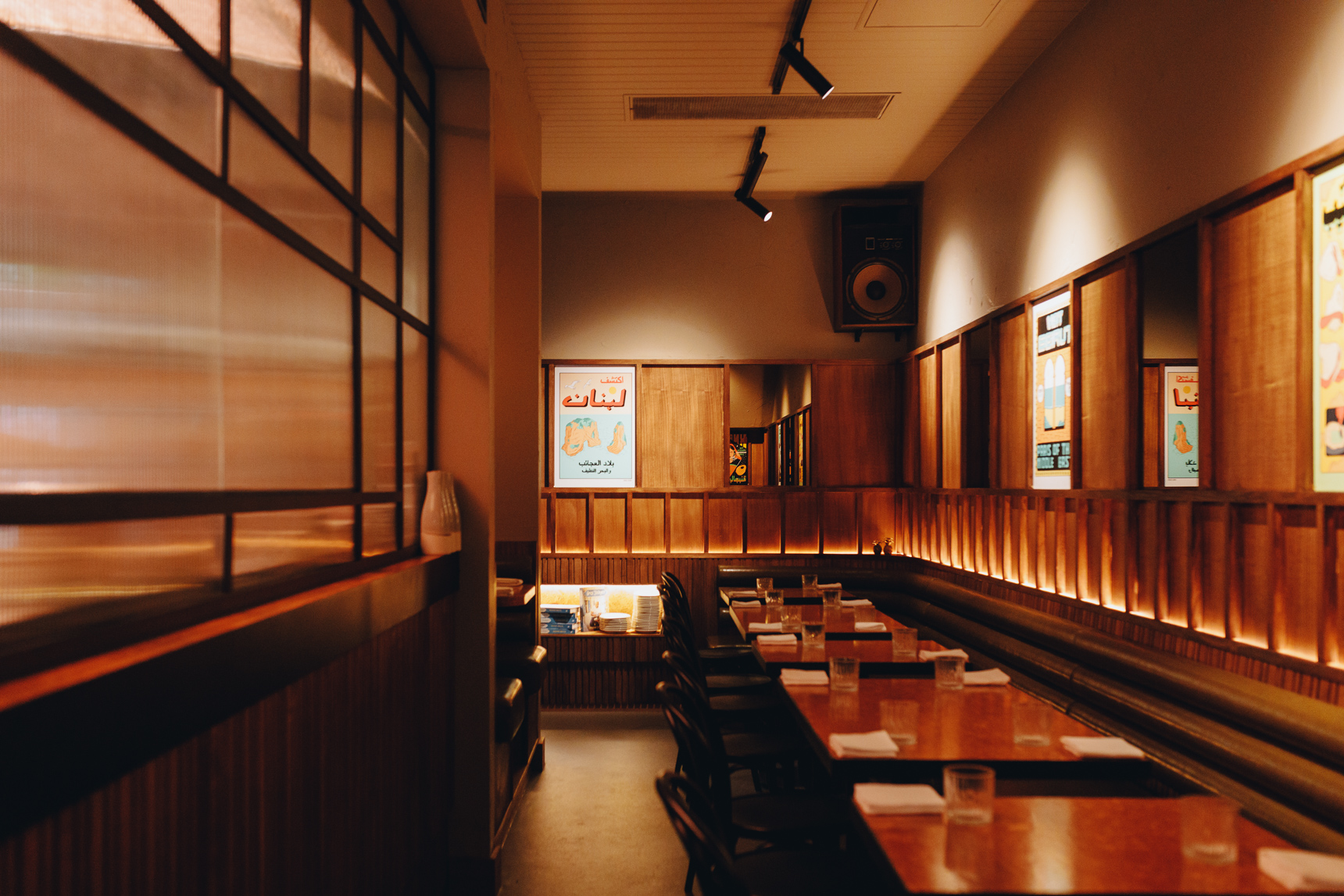
What does the road map mean for your business?
We’re unsure at the longevity of our business/es at this stage, as we have seen things can change quickly and dramatically.
– Bridget Amor (hospitality)
At this stage, for Frontier, it doesn’t give us enough detail to mean all that much, but the cautious approach does give us confidence that when things do really start to open up Covid will be under control and we should be able to move faster and more meaningfully. We’d prefer to move later, but with more certainty, than earlier but with higher risk.
– Dion Brant (live music)
We’re in a better position than most venues as we don’t rely on alcohol sales, and work directly with artists. For our studios and venue, we should be allowed to host live streams and broadcasts very soon. Over the various stages we can move to small gigs with limited audiences. We’ll have time to adjust to the new needs of musicians.
– Helen Marcou AM (live music)
The milestone we’re chasing is the relaxing of the one person per four-square-metre density quotient, to at least one per two square metre, but hopefully even more than that. Only then will we get close to being viable again. There’s no date in the road map for this, but it won’t be happening until we reach the “Covid normal” phase – 28 days without a case. That doesn't feel achievable at the moment when you look at just about everywhere else in the world.
– Justin Joiner (hospitality)
It's particularly important for the music industry that the virus is under control as much as possible, even though it means some short-term pain. We need people to be able to come together with confidence in venues and at festivals, and that can only happen if things open up carefully.
– Emily Ulman (live music)
I haven’t been like many, who just stick their heads in the sand and wait for the government to make decisions. I change things, to make sure I can make my own decisions. We’re okay, Providoor’s smashing it, pumping money into the restaurants and keeping my staff employed. I’m alright.
– Shane Delia (hospitality)
It means less people are allowed to enter the venues and it might not even be worth opening Old Bar until we are allowed full capacity. And with Jobkeeper payments going down, it’s going to be a very hard struggle for a lot of places.
– Joel Morrison (live music and hospitality)
Every day we aren’t open is more debt that we are accumulating.
– Josh Uljans, co-founder, Moon Dog World, Preston and Moon Dog OG, Abbotsford (hospitality)
Disaster. But I am incredibly grateful for the goodwill I have built over almost nine years of trade; incredible tax breaks and governmental financial support, and the fact that the worst lockdown was in winter. These factors, along with the long history of good financial management, committed staff and a good landlord, will enable our survival.
– Adele Arkelle (hospitality)
Rather than provide a clear outcome for our business we are probably still having to wait and see what happens. It’s a frustrating feeling we’re having to live with, daily, for the last six months.
– Matt McConnell (hospitality)
This year has consisted of constantly moving goalposts for us as a business – everything from stores being able to trade, to staff being able to work from the office or not. The road map for us is just another guide that informs the above. As a business we are incredibly fortunate that our online store and stores outside of Melbourne are trading very well.
– Lucy Folk (fashion)
The viability, resumption and even planning of numerous aspects of my business are beholden to the road map. Activities such as working from a studio to create new music, shooting essential content such as photos and videos, promoting live music events, accepting live performance and business opportunities requiring interstate or international travel.
– Zac Abroms (live music)
It means that we have a lot of work to do to fill a backlog of clients in desperate need of hair help. With social distancing measures we can only operate at half capacity so obviously we are going to inevitably and unwillingly disappoint some loyal and much valued long-term clients.
– Tom Donato (hairdressing)
For us it’s unlikely we’ll be open for dine-in until next year and financially this will put us many years behind. It’s still not clear whether we’ll reach a point where we can rebuild a profitable business, which makes it difficult to plan or invest.
– Christian McCabe (hospitality)
I have many employees and family who rely on me to lead them, and keep them fed and sheltered, who have been abandoned by our government. The road map does nothing to relieve any of that pressure. It creates more work, more risk, more uncertainty, more bureaucracy and way more stress, in an already fragile state of mind.
– Marco Finanzio (hospitality)
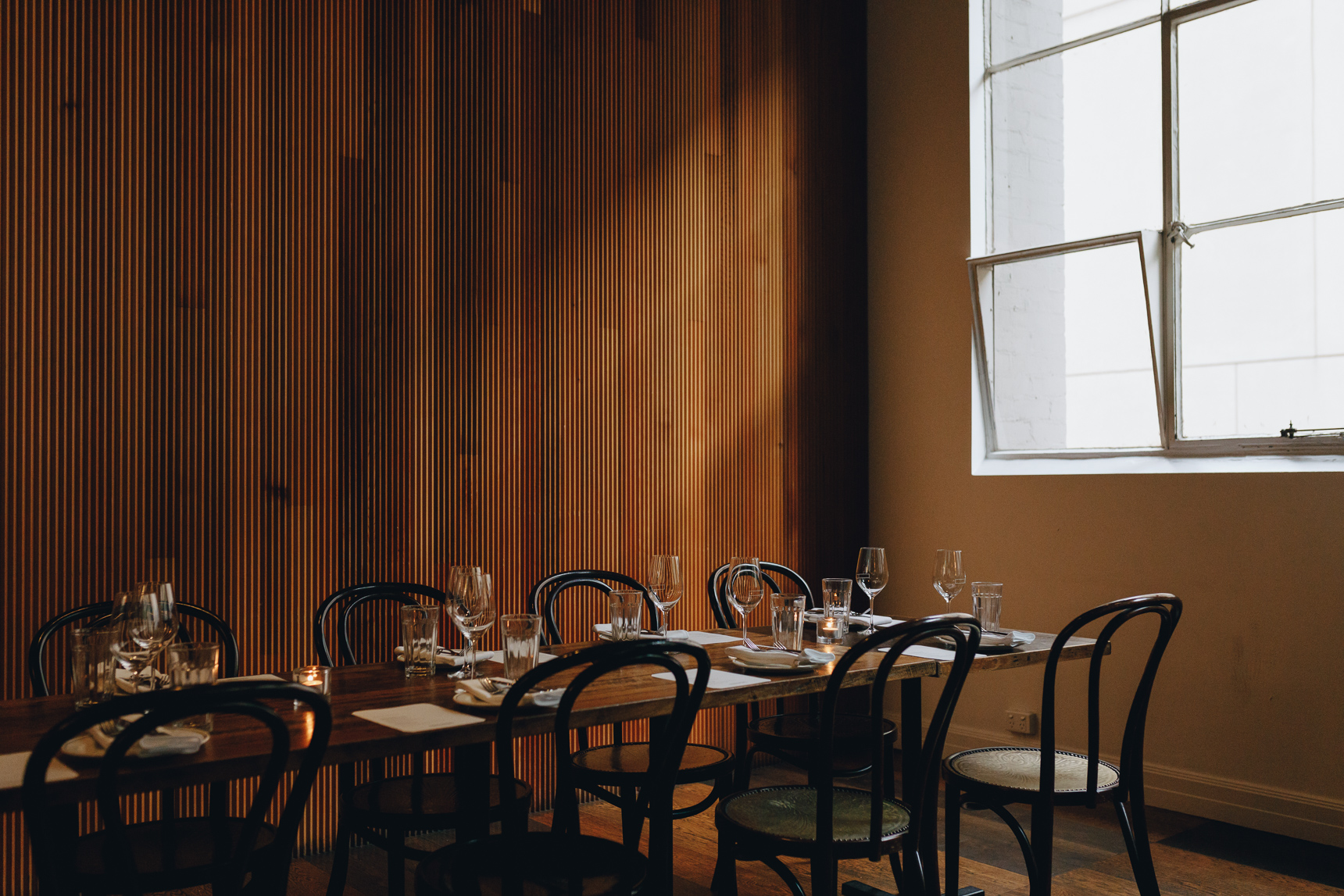
How can the government and the public continue supporting you and your industry through this time?
Keep dining out, in.
–Julian Hills (hospitality)
This is the billion dollar question right? Perhaps, more aptly, the multi-billion dollar question. Extension of support until such time that the flow is back to some normality.
– Salvatore Malatesta (hospitality)
Jobkeeper needs to be continued in Victoria at the current rate, rather than dropping at the end of this month as planned. It really is the only thing keeping most businesses alive and given we’re still locked down I can’t see how it makes sense to reduce it at the same time as other states, some of which have been back open for business for months.
– Justin Joiner (hospitality)
Government: keep Jobkeeper at the same level, include visa workers on Jobkeeper and give operators the ability to hire people that are on Jobseeker and convert them to Jobkeeper. Public: buy local, support venues that are independently owned. Where possible don’t use Uber Eats et cetera, and be mindful that we’re doing everything we can to create great experiences, even when we can’t seat you at a table.
Michael Bascetta (hospitality)
Our community have overwhelmed us with generosity and hope by purchasing gift vouchers for musicians in our “pay it forward” campaign. The relief money that the Andrews government announced yesterday will be a lifeline, however, the federal government’s tapering of Jobkeeper could be our and others’ economic undoing. Many music industry staff were freelance or part time and held down multiple jobs. Those jobs don’t exist now and we will do our best to sustain staff, but the recession leaves us exposed.
– Helen Marcou AM (live music)
Buy music and merch from artists and independent record stores, stream local artists, request local music on (commercial) radio stations, and support local live music venues by buying meals, merch or whatever they are still offering.
– Emily Ulman (live music)
Open capacity up [and get] councils to help more with outside dining if that’s an option (which won’t be at a lot of places). More grants for small businesses. A freeze on utilities and more help with getting landlords to ease off.
– Joel Morrison (live music and hospitality)
The hospitality industry – among a small number of other industries - has been disproportionately adversely affected by Covid-19. We have been shut down for the majority of this year and our capacity to offset this through pivoting is minimal. We need targeted and enduring financial support from the state and federal governments, as well as flexibility from local councils in allowing us to make the most of our opportunity to safely manage outdoor dining.
– Josh Uljans (hospitality)
The public can have realistic expectations of what we can provide. They can support us directly, rather than using third-party apps. They can appreciate that this is a tough industry, tougher now than ever, and be kind when we tell them that we are booked out. The government are actually already giving us amazing financial support.
– Adele Arkell (hospitality)
The government needs to step up a bit more and provide greater cash injections. Small grants are just a tip of the iceberg of a much larger debt issue. The public, our customers, have been incredible through all of this. Without their continued support we would not be here now.
– Matt McConnell (hospitality)
We have a store in the CBD and a change in restriction regarding outdoor dining (as we’ve seen in NYC for example) would completely change the potential of that site over the summer.
– Lucy Folk (fashion)
The government needs to appreciate that the relief funding for businesses that are currently sidelined by the pandemic is little more than a temporary band-aid if the infrastructure and landscape required for our businesses to function isn’t there when we return. They need to ensure that pubs, clubs, live music venues, rehearsal spaces, recording studios and music festivals, and the thousands of Melburnians they employ, do not become permanent casualties of the pandemic. The public need to appreciate that complying with simple restrictions such wearing masks and social-distancing could mean a difference of months for the livelihoods of many thousands employed in the arts and entertainment, whose return to work is beholden to the road map.
– Zac Abroms (live music)
Right now the push for relaxing regulation around use of outdoor and public areas to allow the industry to quickly develop a strategy for utilising this for trade is where government and the public alike could be directing their energy. The wheels are in motion, but there is way to go.
– Simon Denman (hospitality)
State government support for musicians and venues has been positive. It’s not perfect but they seem to understand the issues and be trying to support different sectors and pockets with proportionate response. The federal government’s Jobkeeper has been a life saver, but the arts support package was late, low on detail, and extremely low on a per capita basis when compared to other countries and other similarly-sized industries.
– Dion Brant (live music)
In terms of the government we’d like to see a more consistent and coordinated approach from the various levels of government. This business of Scott Morrison refusing to offer more assistance to Victorians unless Dan Andrews gives more first is very petty and makes most of us feel let down by our elected representatives. Ultimately what we all need is money and lots of it. A $10,000 grant for a business with millions of dollars in operating costs is better than nothing, but not by much. To the public, my main point would be to think carefully about who you spend your money with, because the businesses we all support now will be the ones more likely to survive. So if you want something to stick around this is how it will happen. The major supermarkets don’t need any more support.
– Christian McCabe (hospitality)
Consult the industry properly and with considered intent. Long term and sustainable benefits to assist in a very long road to recovery. Visa/sponsorship leniency (457), tax benefits, [abolish] fringe benefit tax, accept the fact that it’s the international students who hold this industry together, and allow them to work more than 20 hours per week. Everything that Ronnie Di Stasio mentioned in his open letter.
– Marco Finanzio (hospitality)
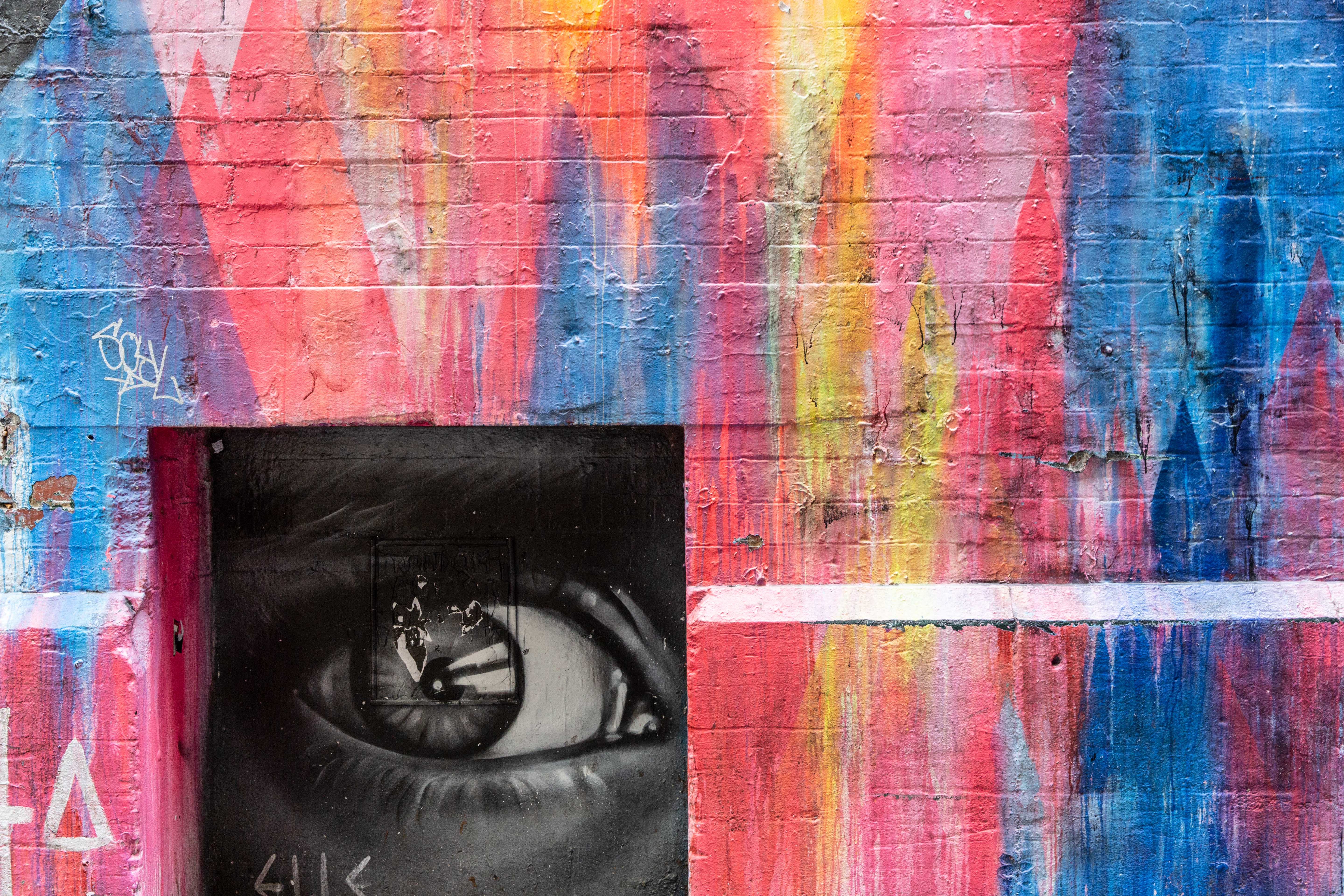
How do you feel about the future?
I can’t wait to get back into the pub for a beer!
– Josh Uljans (hospitality)
As a veteran owner-operator, I was kind of burnt out before Covid. Now I feel like I’m starting a whole new business – something I used to thrive on. I’m resilient, and have to remain that way so as not to spook my staff group, but this whole thing has left me feeling that that incredible amount of love and creativity and hard work I have done over 20-plus years, has been dealt an extremely harsh blow. I’ll recover, but will I have the momentum and enthusiasm which has been my trademark? Not sure.
– Adele Arkell (hospitality)
I’m wishing away the next two months – then good.
– Alex Cleary (fashion)
I’m hopeful, I have to be to survive. The pandemic has surfaced so much inequity in society. Collectively we’ve found what matters and left behind the mass consumption of things we don’t need, stopped worshiping gratuitous wealth and [learnt to] treasure our family, friends and the simplicity of past times.
– Helen Marcou AM (live music)
I have some anxiety about the future, of course, because it is so unknown. But I also have a lot of confidence in the resilience of the Australian music industry; that people will continue to innovate, create and connect. And that we will come out of this even stronger than before.
– Emily Ulman (live music)
I feel surprisingly optimistic. I’m incredibly frustrated that Victoria is where it is, but there have been silver linings and we have learnt to adapt. So much creativity has come out of this situation and it has reaffirmed for me how important art is in all its forms. Some of the most enduring and poignant images for me over past few months of the pandemic have come from artists, performers, musicians, authors and dancers collaborating and presenting work online for a worldwide audience – all stuck at home.
– Sophie Gannon (art)
Anxious.
– Joel Morrison (live music and hospitality)
The stuff we’re doing with Providoor, that style of catering, has a future. It’s safe, it’s cost effective. You’re not just talking to 100 people in a dining room, you’re talking to millions. You’re not dealing with overnight penalty rates and crockery and glassware and rents and marketing. It’s pretty straightforward.
– Shane Delia (hospitality)
Optimistic, but there will be a lot of heartache to get through prior to being in a position to grow again.
– Michael Bascetta (hospitality)
Full acceptance that there will be some real pain ahead before there is recovery. Battening down the hatches and preserving emotional and financial reserves to ride out the storm.
– Salvatore Malatesta (hospitality)
Pragmatic. Melbourne, Australia and the world at large won’t be restored to any semblance of normality until a vaccine is made available and widespread inoculation takes place. We are facing years, not months, of deviation from standard practices of doing things and some industries are more affected than others. We also have to accept that some things will never be the same.
– Zac Abroms (live music)
Generally positive about the longer-term future. People have been deprived of that live, in-person connection during this time and I feel like they will value that more than ever in the future. I think our industry still has a tough six to 12 months ahead of it before we get to that point.
– Dion Brant (live music)
Positive. History tells us that we will be fine. It may take a while, but we’ll be fine.
– Tom Donato (hairdressing)
Going forward I think we’ll be fine. But we’ll see what happens when they start rolling back Jobkeeper. I think there’s going to be a lot of carnage in the next few months, without hospitality running at full. But we plan on surviving. I don’t have a choice.
–Julian Hills (hospitality)
My main concern is that Melbourne continue to be a fun place to live. I didn’t move here from New Zealand for the weather, the scenery or the expensive housing. The energy that existed here, the talent within the industry and, more importantly, the calibre of our customers made for one of the best places in the world to operate a hospitality venue. If we let this die, many of the people who make it happen may move somewhere else, or not come here in the first place, and that will seriously impact the quality of life for many millions of people.
– Christian McCabe (hospitality)
Optimistic. I think this time away from the gym or Pilates studio has really helped solidify how necessary movement and being part of something is for people’s wellbeing. Now the cost-benefit analysis falls further in our favour. The 2.5 weeks we were re-open in June/July saw sales and attendance jump right back to, and even exceed March figures and highly exceed YOY figures.
– Cat Webb (fitness)
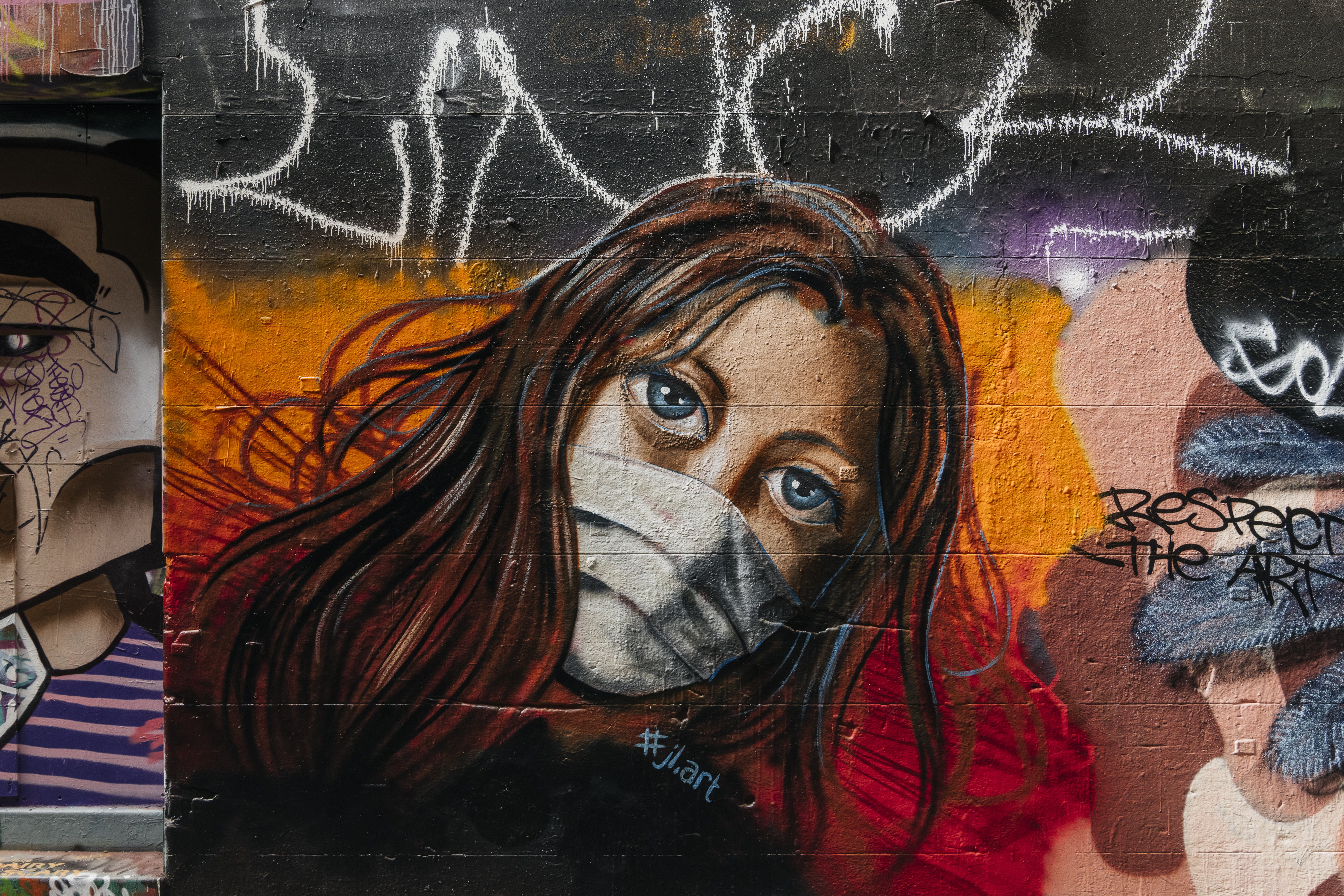
What do you want the public to know right now?
We appreciate every dollar you spend with us. Receiving thanks for what we are doing throughout Covid gives us the energy to keep slogging through this day in day out.
– Michael Bascetta (hospitality)
We are far from out of the dark. The industry will not be the same after. Where the public chooses to spend their discretionary income does really matter. Woolies versus independent. Delivery service versus in-store purchase. Victorian versus interstate. Our future is in their hands.
– Bridget Amor (hospitality)
Thank you. Thanks for caring about others and making everyday sacrifices to protect lives.
– Helen Marcou AM (live music)
The public should know that if we continue to pull together, we’ll get through this, just as we are driving the case numbers down together now. If we lose patience, we will end up the way they are in many countries in the world right now where they opened up too quickly and are now experiencing a third wave. That would be truly disastrous for both the economy and for people on a personal level. We’ve got this!
– Emily Ulman (live music)
The restaurant was broken at 100 per cent capacity. So how’s it going to be profitable at 50 per cent capacity? Or 20 per cent capacity? What’s the point of taking a dollar if you lose five cents every time? It’s a slow death. We need to have a bigger discussion. What are we opening up to? What are the restrictions going to be? Is there going to be any IR [industrial relations] stuff that’s changing? Can restaurants still afford at the same rates that they were? Can we afford the same rents? Can we afford the same tax? Can we afford the same pay for our teams? Can we afford the same insurance? Can we afford all those things? Is the restaurant model still working with 20 people in a dining room? Because why would you want to rush back to something that’s broken? I don’t get it.
– Shane Delia (hospitality)
Commercial galleries may be closed to the public, but artists are still painting, sculpting, photographing and making. And we are still presenting their work. Until our doors open up again, you can see exhibitions and new work online or in the gallery window (if you are in a five-kilometre radius). Support artists and support the arts.
– Sophie Gannon (arts)
That I can eat off the floor of any skin clinic that I’ve been to. We are safe, we have always worn PPE. We study infection control and cross contamination. There have not been any Covid-19 transmissions recorded as a result of a skin clinic, anywhere in the world, that we could find.
– Sia Psicharis (beauty)
Despite a shameful response at a federal level, the arts will survive the pandemic. We’re a resilient, intelligent and keenly creative sort. The show has been placed on pause for many of us right now, but there are still ways to stay connected and continue to support us.
– Zac Abroms (live music)
It’s not about profit or economics. The health issues extend beyond Covid cases. Now is the appropriate time for striking that balance. It’s time to open up in a safe way that sees a return to positivity, mental healthiness, community connections and support.
– Marco Finanzio (hospitality)
Weirdly, I’m still bullish about the future. Things will be different and it may take longer than we like to get there but I think Melbourne will bounce back strongly. We’re too proud of this town and its food and drink culture to let this beat us.
– Justin Joiner (hospitality)
